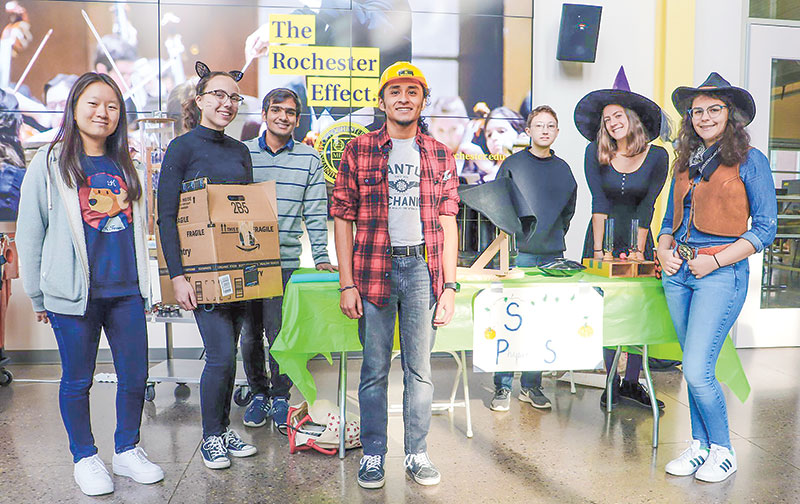University of Rochester SPS Chapter Responds to Black Lives Matter: How We Need to Change
Fall
2020
Feature
University of Rochester SPS Chapter Responds to Black Lives Matter: How We Need to Change
Molly Griston, SPS Chapter President, and Amanda Wasserman, Former SPS Chapter President, University of Rochester
The recent surge in antiracism protests and demonstrations prompted us to examine the impact of race in the physics community. We felt it was necessary to release a statement in firm support of these demonstrations and, more specifically, to emphasize the concrete changes our club can make to create a more welcoming environment for Black and Indigenous students. It’s easy to stand in solidarity, but we cannot expect any progress if we don’t recognize our own problems and fix them. We are working closely with our department to hold each other accountable and ensure that constructive discussions are continued and changes are actually implemented.

Our chapter is adjusting our outreach focus by going to Rochester City schools, where the classes are majority Black students, rather than planning outreach events that bring students to us. We recognize that our previous methods of outreach have helped to reinforce systemic disadvantages faced by underprivileged students while favoring students with the time and ability to travel to campus. We planned past outreach programs based on convenience, and we intend to change our emphasis. While social distancing restrictions will make planning outreach events challenging this year, we are looking into virtual outreach events and will not let these obstacles deter our efforts.
We recognize and embrace the fact that Black Lives Matter and similar campaigns constitute a fundamentally Black-led movement. Accordingly, we would like to collaborate with the Black student organizations on campus. We have begun educating our own members by sending them specific resources, and we also plan to hold more events that are dedicated to discussing diversity and representation in physics. Obviously, we cannot place the burden to educate us on the Black community, but we also cannot pretend to make an environment more welcoming for Black students without taking the time to not only hear these students but to also amplify their voices in the physics community.
In addition to the aforementioned items that our chapter will be focusing on, we have also been involved in discussions led by graduate students about changes at the department level. The discussion topics have included hiring, admissions, mentoring, the APS Bridge Program, climate and retention surveys, colloquia speakers, journal groups, and more. We are especially proud of and encouraged by the fact that these discussions have already had positive impacts, such as the assignment of a Bridge Program faculty advisor, and that an infrastructure has been created to ensure that these discussions are ongoing. Additionally, the department has created significant documentation—including a list of short-, medium-, and long-term goals—and we are in the process of defining methods to evaluate whether these goals have been met.
We are excited about the trajectory of change that our chapter of SPS and our department have been moving toward, but we also know that this is only a first step. We recognize the hurt and discomfort felt by students of color in our department, as well as in the physics community as a whole, and realize it is past time to rectify this.
